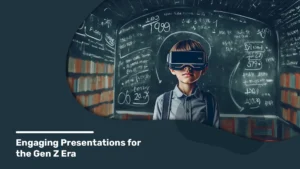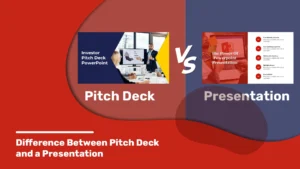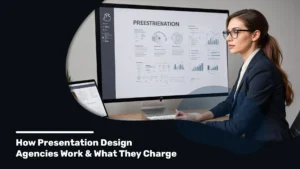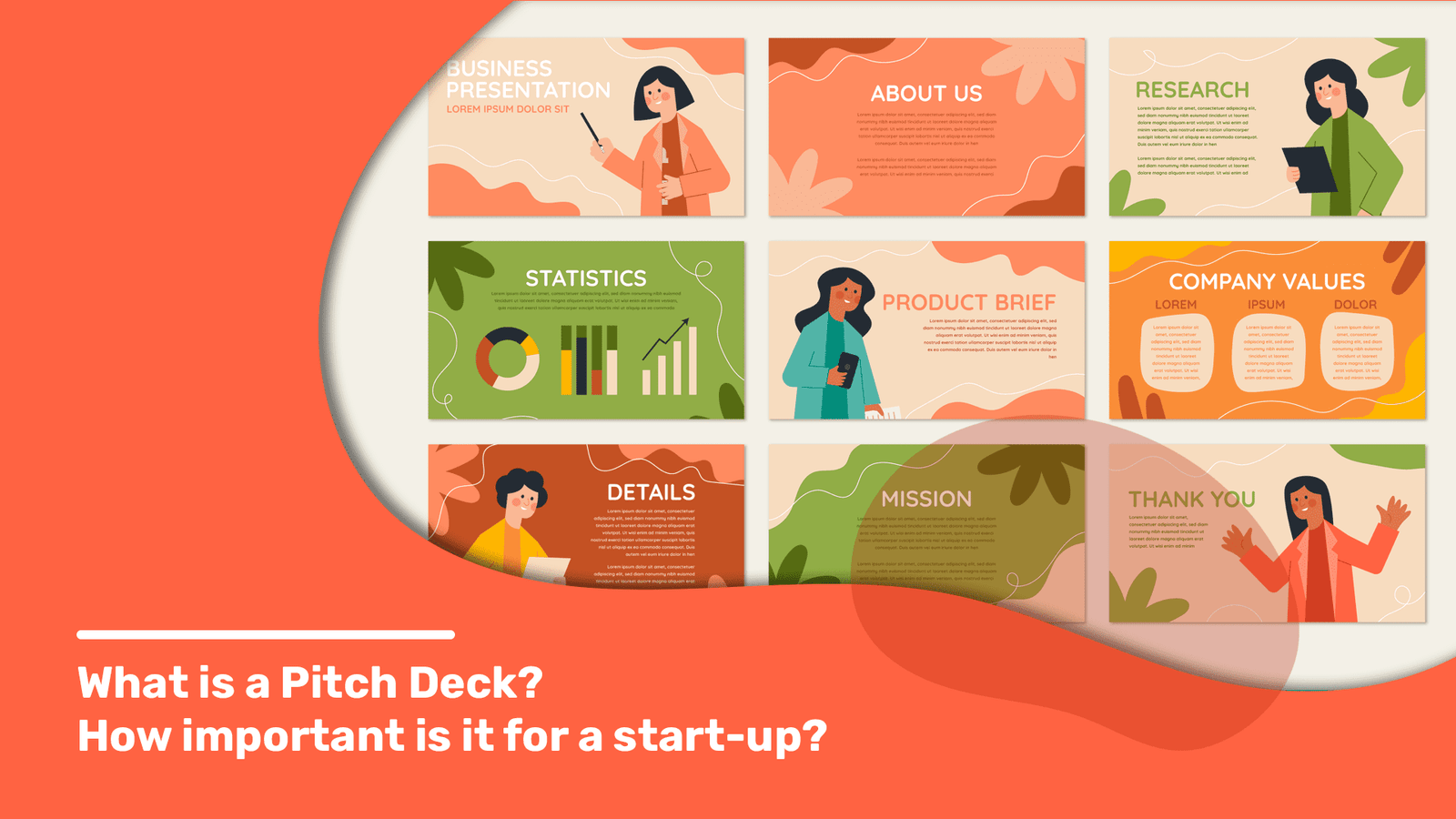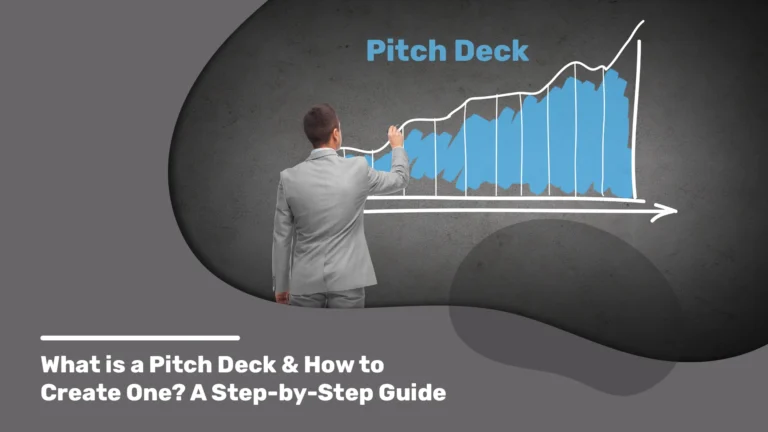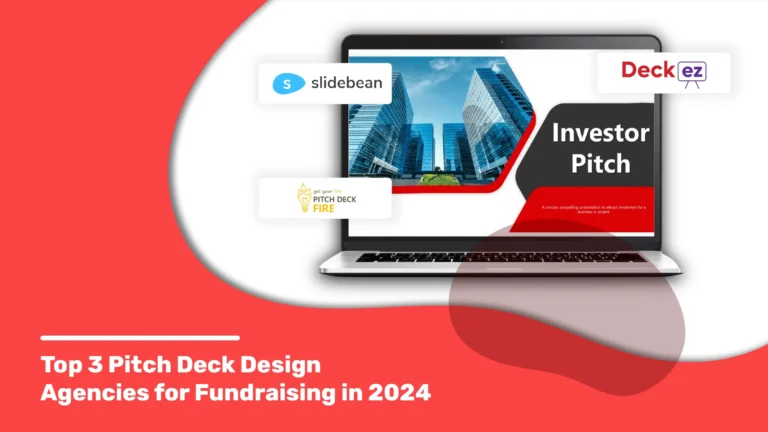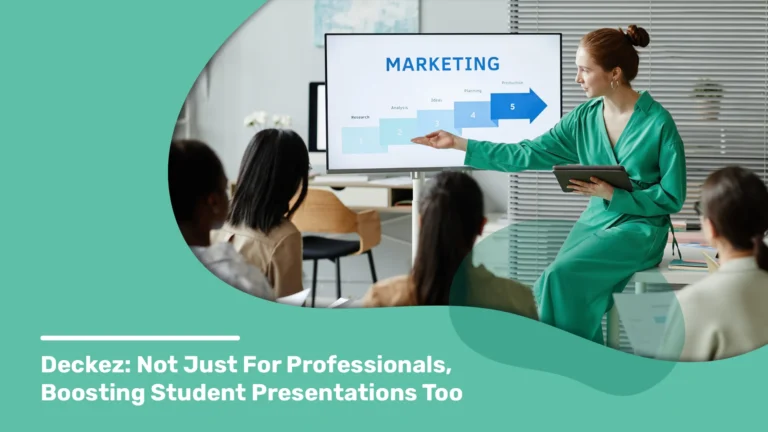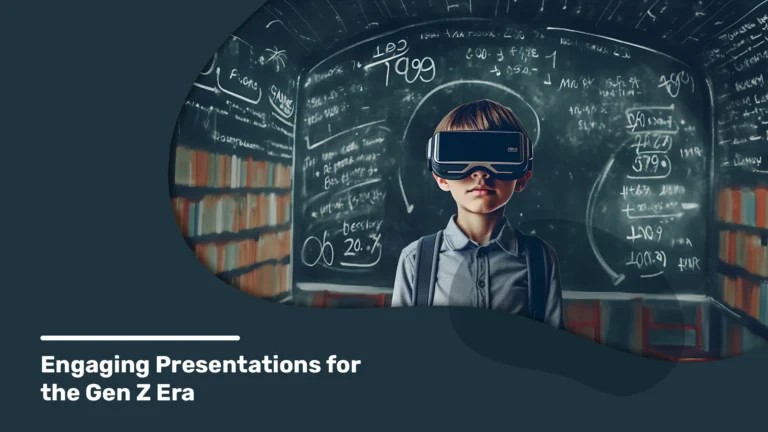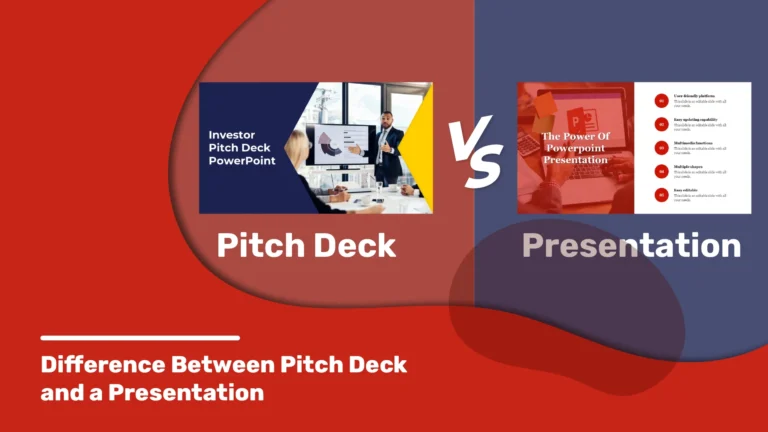A pitch deck is a visual presentation of your business destiny to stakeholders, investors, or followers. This concept aims to support or secure investment in your business.
Explore this writing work to find a clear vision on investor decks. Spend your precious time grabbing our edifying content about pitch decks and pitch deck designing agency. Let’s drive
What is a pitch deck?
A pitch deck is a presentation that helps you convince your business idea to investors or other interested parties. The slideshow includes your company’s value propositions, market opportunity, revenue model, team, and financial productivity.
Pitch decks are vital tools, especially for start-ups. Often, start-ups use pitch decks to raise funding, but established businesses can also use them to promote new products or services or partner with new businesses.
Why is it called a pitch deck?
The word “pitch” in this context means convincing someone to invest in or support your idea. Pitch decks are often created in PowerPoint Google Slide or Keynote presentations, which is why they are called “decks.”
A pitch deck helps you visually communicate the key parts of your business to investors or potential partners. This makes it easier to explain your idea and why it is valuable.
What is the purpose of a pitch deck?
A pitch deck gives a brief, persuasive snapshot of a business to investors, partners, or stakeholders. It’s a visual guide that covers the business model, market potential, unique offerings, finances, and team strengths, aiming to persuade and spark interest for support, funding, or partnerships.

A pitch deck is an important tool for entrepreneurs because it can help them raise capital, secure partnerships, and generate interest from customers. Let’s preview the overall process of pitch deck importance:
Raise capital: Investors are often bombarded with pitches, so a well-crafted pitch deck can help to grab their attention and make an excellent first impression. A pitch deck can also help to answer any questions that investors may have about the business.
Secure partnerships: Pitch decks can also be used to pitch to potential partners, such as suppliers, distributors, or marketing agencies. A pitch deck explains the benefits of partnering with the business and demonstrates its value proposition.
Generate interest from customers: Pitch decks can also be used to generate interest from potential customers. For example, a startup might use a pitch deck to pitch its product or service to potential beta testers.
A pitch deck should be concise and to the point. It should be visually appealing and easy to read. It should also be tailored to your specific audience, whether you are pitching to angel investors, venture capitalists, or corporate investors.
Why is a pitch deck important?
You know, a pitch deck is like a secret weapon for business folks. It’s a set of slides that tell the story of your business or project. And why is it so crucial? Well, think about it: when you need money, partners, or support for your cool business idea, this is your go-to tool.
You can share this pitch deck with potential investors or partners. They’re like your friends, but they might be willing to give you money or join your adventure. The pitch deck helps them see why your idea is fantastic, what it’s all about, and why they should jump on board.
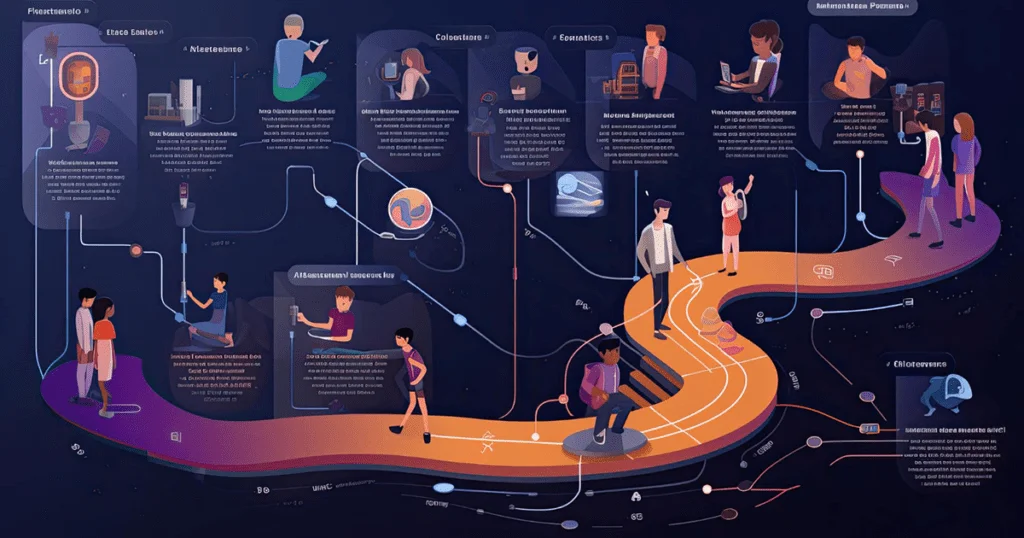
In simple terms, a pitch deck is your tool to make your idea shine, grab attention, and get others to say, “I’m in!” It’s the roadmap to your business or project’s success.
Famous pitch decks example
Several famous pitch deck examples from successful startups and companies have become well-known in the business world. If you are an entrepreneur, we encourage you to study these pitch decks and learn from them. They can be a valuable resource as you develop your pitch deck.
Walt Disney
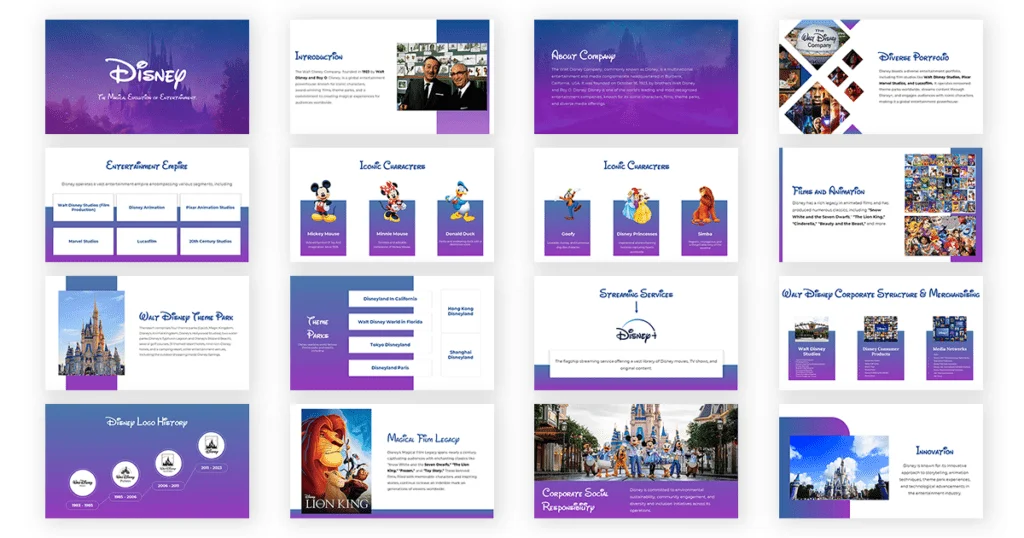
Source:Slideegg.com
Walt Disney’s original pitch deck, created in the early 1920s, stands as a landmark presentation. This groundbreaking document showcased Disney’s unique blend of storytelling and entertainment, providing a glimpse into his target audience, revenue strategy, and the immense possibilities within the realm of animation and family-oriented content.
Amazon

Source:Slideegg.com
Amazon’s early pitch deck, created in the mid-1990s, is widely regarded as a pivotal presentation. This landmark document unveiled Amazon’s groundbreaking vision for online shopping and its novel business approach. It highlighted the e-commerce giant’s vast market potential, its revenue strategy, and its ambition to transform consumer behavior.
McDonald

Source:Slideegg.com
McDonald’s initial pitch deck, created in the 1950s, is a . This old document showed how McDonald’s was different in delivering food quickly, the same way every time, and at a low price. It gave information about what was on the McDonald’s menu, how the company planned to grow, and the new franchise model that helped McDonald’s become a global fast-food chain.
Get investor pitch deck presentations online, and studying them can provide insights into how successful companies present their ideas and business plans to investors. Keep in mind that pitch deck content and design can evolve, and what worked for these companies at their early stages may not be directly applicable to every business or project. However, they are valuable references for entrepreneurs and startups looking to create effective pitch decks.
How to design a pitch deck for your investors
Hey there! We heard you’re gearing up to create a pitch deck for investors. That’s exciting! Do you know where to start? Think of this as your backstage pass to securing funding and support for your business or project.
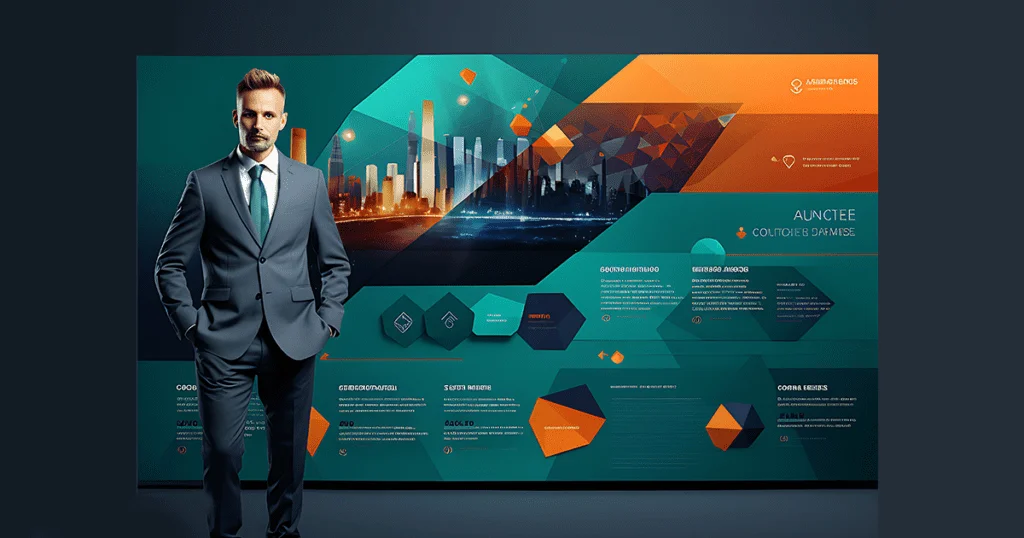
As we dive into this journey together, we want you to picture a pitch deck not just as a collection of slides but as the masterful brushstrokes that paint a vivid canvas of your entrepreneurial vision. Every slide is a word, a sentence, a chapter in the story you’re telling. The ultimate goal? To captivate, convince, and leave investors eager to join you on your mission.
Begin your journey with a grand opening – the company introduction. It’s your opportunity to set the stage, like the opening act of a theater performance, making that unforgettable first impression.
Next, we navigate to the heart of your pitch deck: the problem. We’ll delve into making it gripping, relatable, and utterly convincing. After all, you want investors to feel the significance of the issue you’re tackling.
The solution follows – a beacon of hope in the narrative you’re crafting. We’ll talk about how to showcase your product or service brilliantly, using visuals and plain language to make it crystal clear.
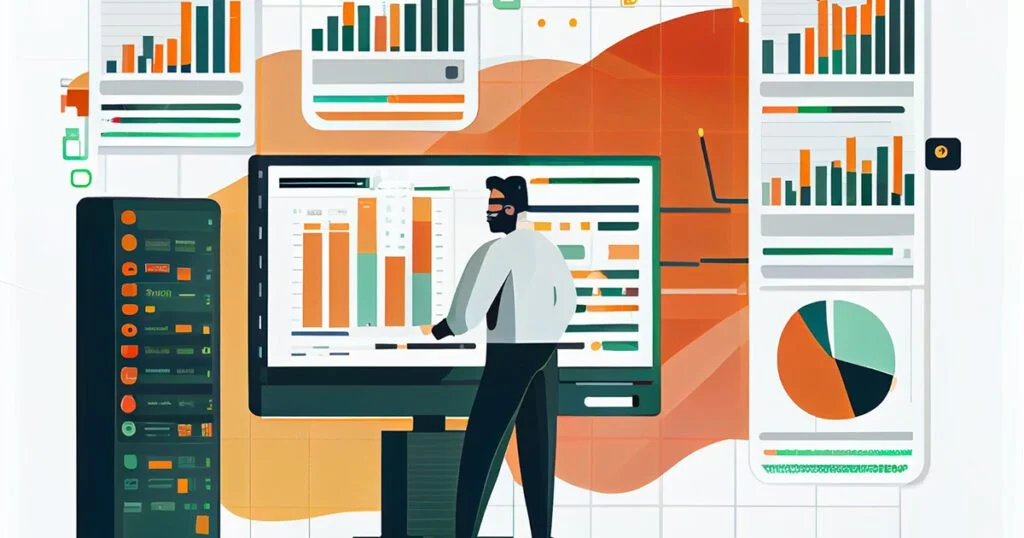
Market size is a vital chapter. Investors need to see the potential. We’ll explore how to present market data and projections that say, “This is where the opportunity lies.”
Competition, you ask? That’s your chance to reveal your uniqueness. We’ll learn how to identify rivals and convincingly explain why you’re the cream of the crop.
In the business model segment, we’ll unlock the treasure chest. This is where you share how your business makes money, unraveling revenue streams, pricing strategies, and sales channels.
But it’s not all about the money; it’s about building lasting connections. The slide dedicated to engaging investors and stakeholders emphasizes commitment to relationships and collaboration.
Your financial forecast is where we delve into the numbers, the brass tacks. It’s your chance to shine, and we’ll talk about how to make those projections realistic and transparent.
Traction? That’s the part where we unveil your journey’s success. You’ll learn to display key milestones and achievements that speak volumes about your progress.
Remember, a pitch deck isn’t just slides; it’s a narrative, a compelling story. With these elements in place, you’ll be well on your way to crafting a pitch deck that speaks volumes and captures the hearts of investors.
So, are you ready to embark on this adventure to master the art of the perfect pitch deck?
Email Your Pitch Deck to Investors
Emailing your pitch deck to potential investors, partners, or stakeholders is a practical and efficient way to share your business or project presentation with a wide range of people.
First impressions are important, so it’s important to carefully craft your email and design your pitch deck to look professional and polished. This will help to build trust and confidence with the recipients.
It’s also important to be adaptable and responsive to feedback. Be prepared to adjust your pitch deck and strategy based on the responses you receive from recipients. This will help you to build productive relationships with potential investors and partners.
Are You Seeking a Pitch Deck Designing Agency?
A strong pitch deck can make it easier to get the money you need to turn your business idea into a reality. This article will help you feel more sure about creating and showing an impressive pitch deck to potential investors.
If you want a user-friendly and professional presentation designer to assist in creating a strong pitch deck, Deckez is the right place to assist you.
Book a call to create a unique pitch deck for your investors.


